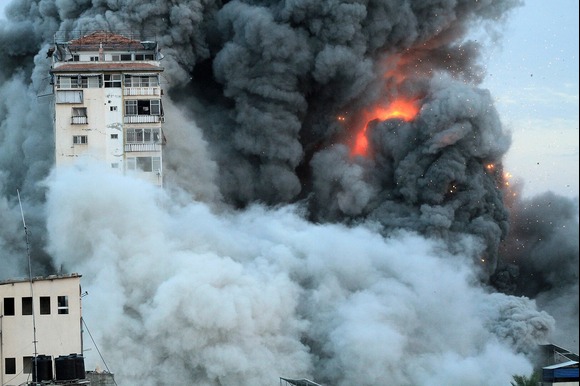Germany has halted all military exports to Israel that could be used in Gaza, following the Israeli security cabinet’s approval of a controversial plan to take control of Gaza City—a major escalation in the 22-month-long war.
The announcement was made on Friday by German Chancellor Friedrich Merz, shortly after Israeli Prime Minister Benjamin Netanyahu’s office confirmed that the Israeli cabinet had formally endorsed a proposal to capture the largest urban center in the besieged Palestinian enclave.
This move follows Netanyahu’s declaration a day earlier that Israeli forces aim to achieve full military control over the entire Gaza Strip, despite growing international condemnation over the war’s devastating toll. Tens of thousands have been killed, and a deepening starvation crisis continues to grip the population.
“In light of the current situation, the German government will no longer authorise any military exports that could be used in the Gaza Strip, effective immediately and until further notice,” Merz stated during a press briefing.
Although he reiterated Germany’s support for Israel’s “right to self-defence” and the need to secure the release of hostages still held by Hamas, Merz emphasised that Berlin could no longer disregard the worsening impact on Palestinian civilians.
“The decision by the Israeli army to intensify its military campaign in Gaza, which was formally approved by the Israeli cabinet, makes it increasingly difficult for Germany to understand how Israel’s stated goals will be realised,” Merz added.
According to a statement from the Israeli government, Netanyahu spoke directly with Merz on Friday to express his disappointment over the arms export freeze. The statement described Germany’s move as a reward to Hamas and accused Berlin of failing to support what Israel calls its “just war.”
The exact timeline for Israel’s new ground offensive remains uncertain, but it is expected to involve mass troop mobilisation and the forcible displacement of civilians, likely worsening the ongoing humanitarian disaster.
Health authorities in Gaza reported that 201 people, including 98 children, have died of malnutrition since the start of the conflict. Israel continues to enforce strict restrictions on humanitarian aid, significantly limiting access to food, water, and medical supplies. A UN-backed report has already warned that famine is emerging in parts of the strip.
Merz called on the Israeli government to ensure unfettered and sustained humanitarian access for UN agencies and non-governmental organisations operating in Gaza.
“With this latest military offensive being prepared, the Israeli leadership now carries an even greater responsibility for addressing the humanitarian needs of civilians,” he stated.
The German Chancellor also cautioned Israel against taking any steps toward the annexation of the occupied West Bank—a move that would further deepen tensions and isolation on the global stage.
In July, Israel’s parliament passed a symbolic resolution in favour of annexing the West Bank, further alarming critics of the government’s policies in the Palestinian territories.
Between October 2023 and May 2024, Germany approved arms export licences to Israel totalling €485 million ($564 million), making Berlin one of Israel’s top military suppliers, according to data released by the German parliament.
Netanyahu’s office has stated that while the Israeli army prepares to seize Gaza City, it will also make efforts to supply humanitarian aid to civilians outside of the designated combat zones. However, critics argue that such plans offer little reassurance as the humanitarian situation in Gaza continues to deteriorate.





